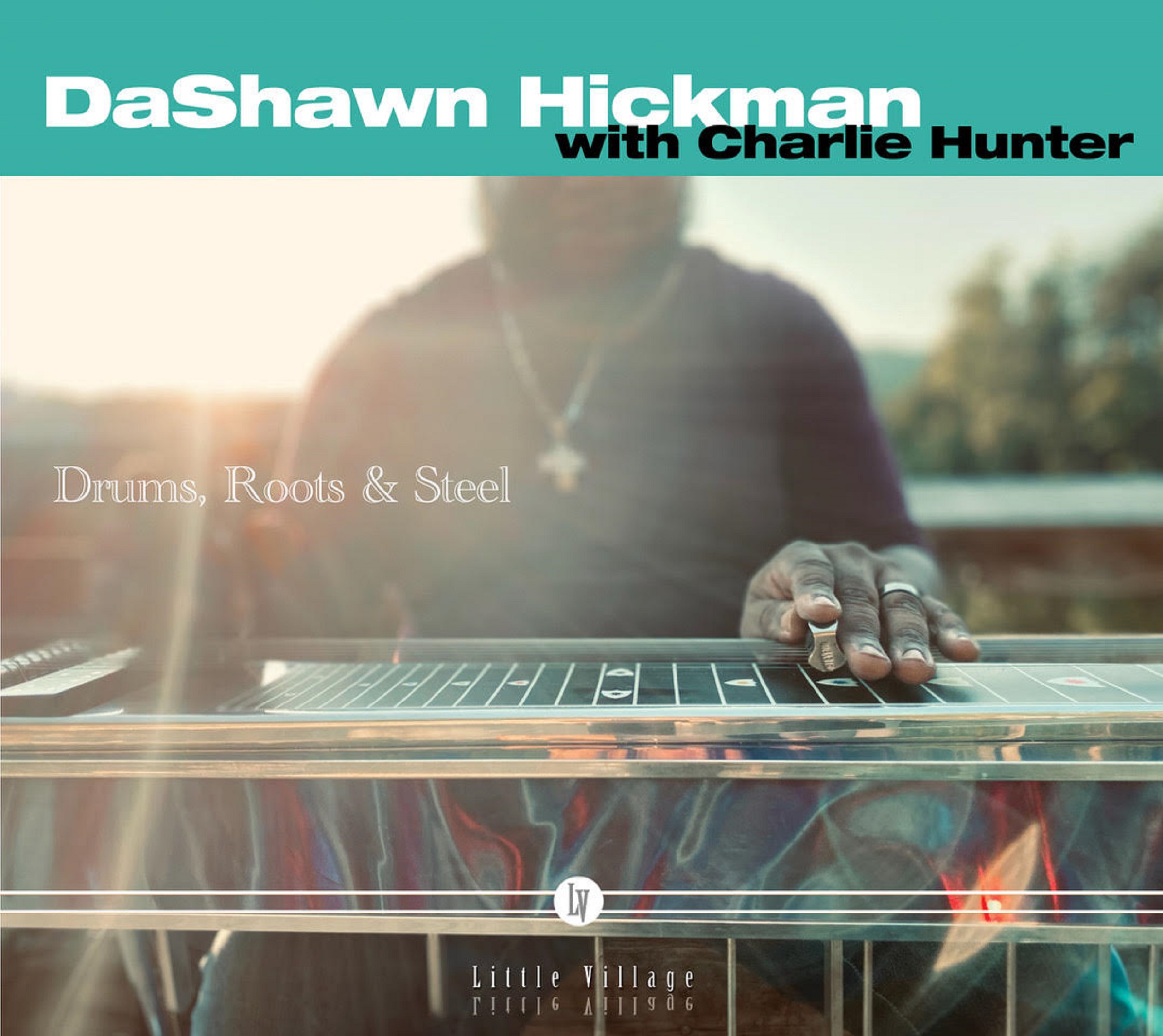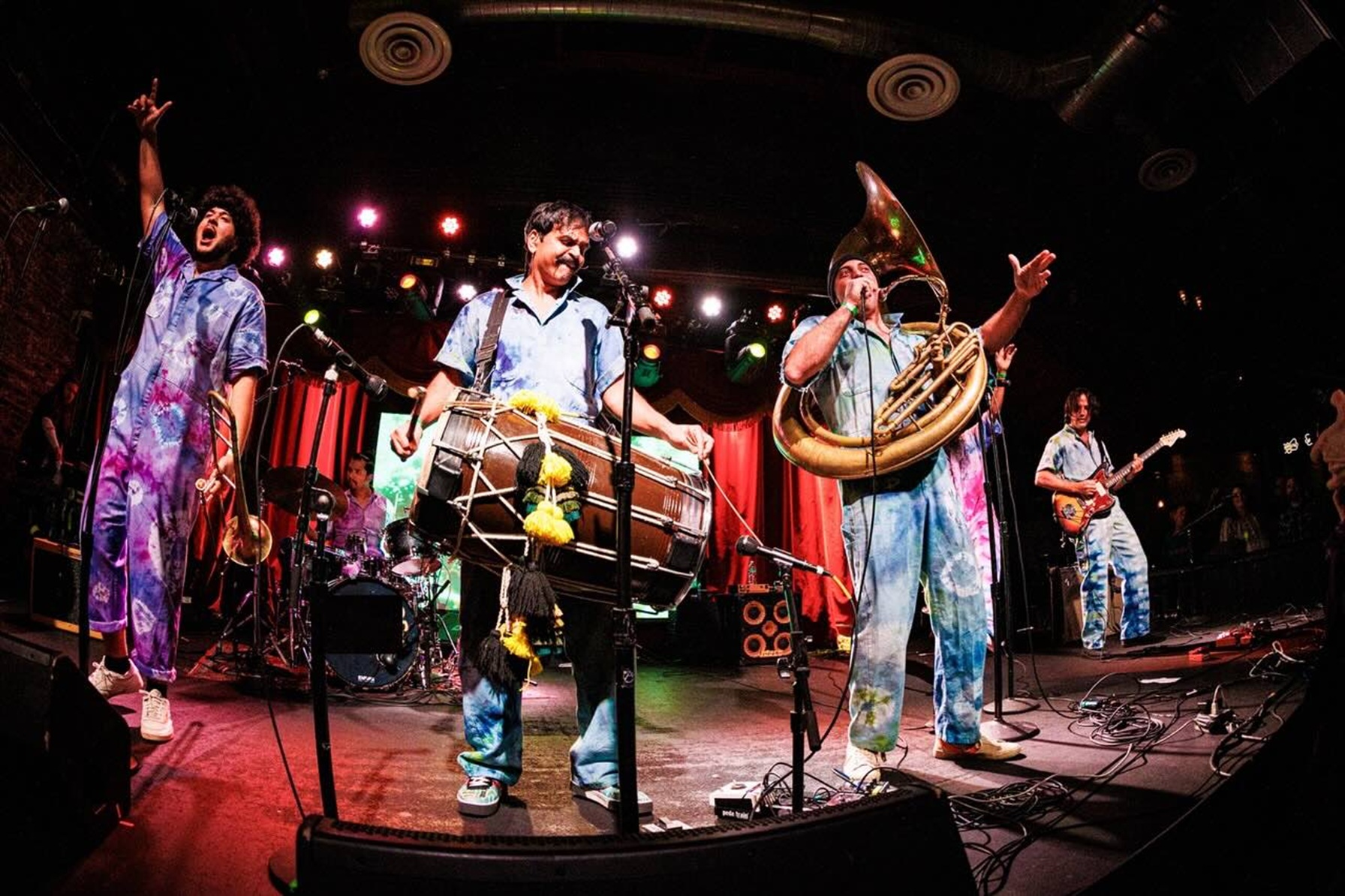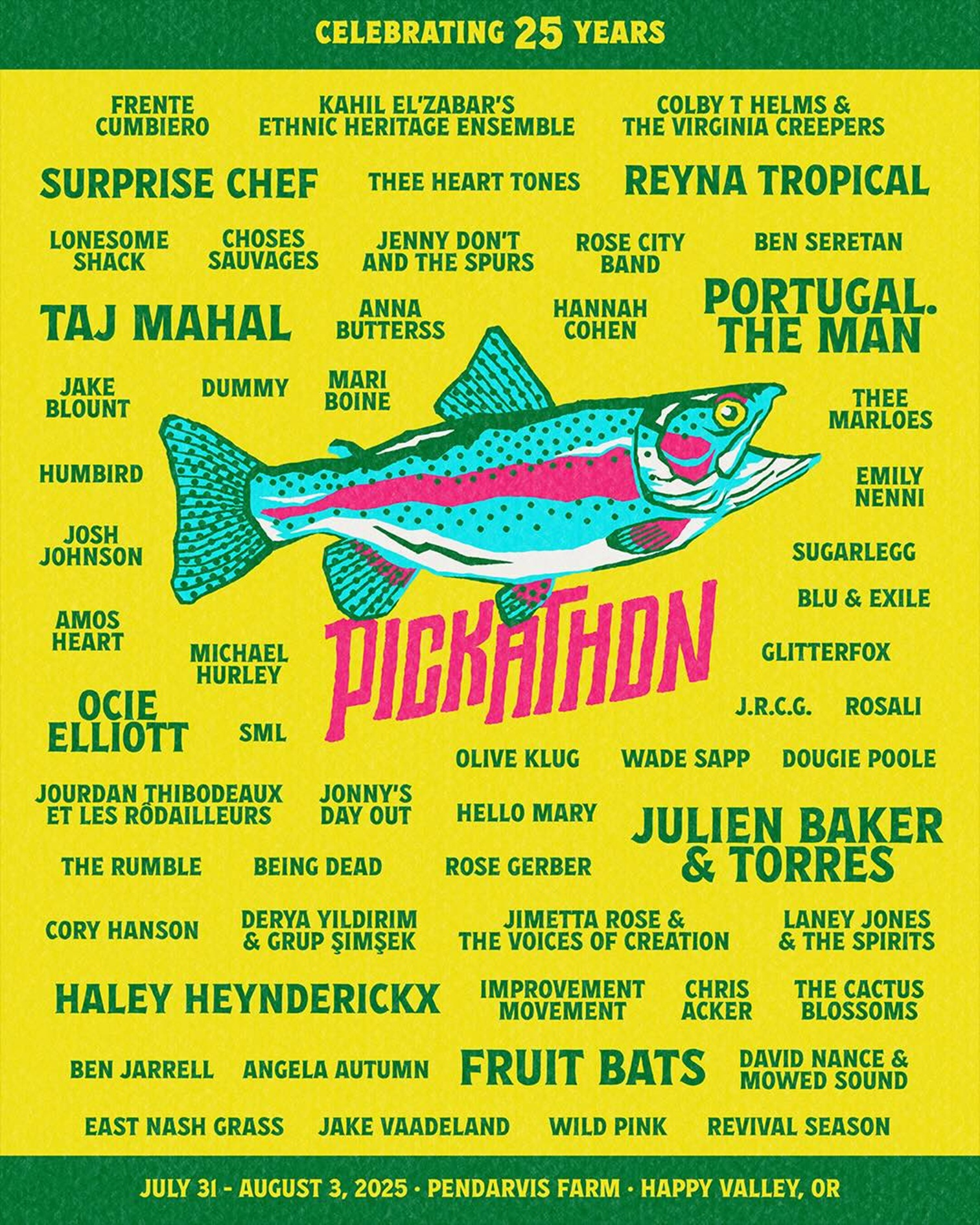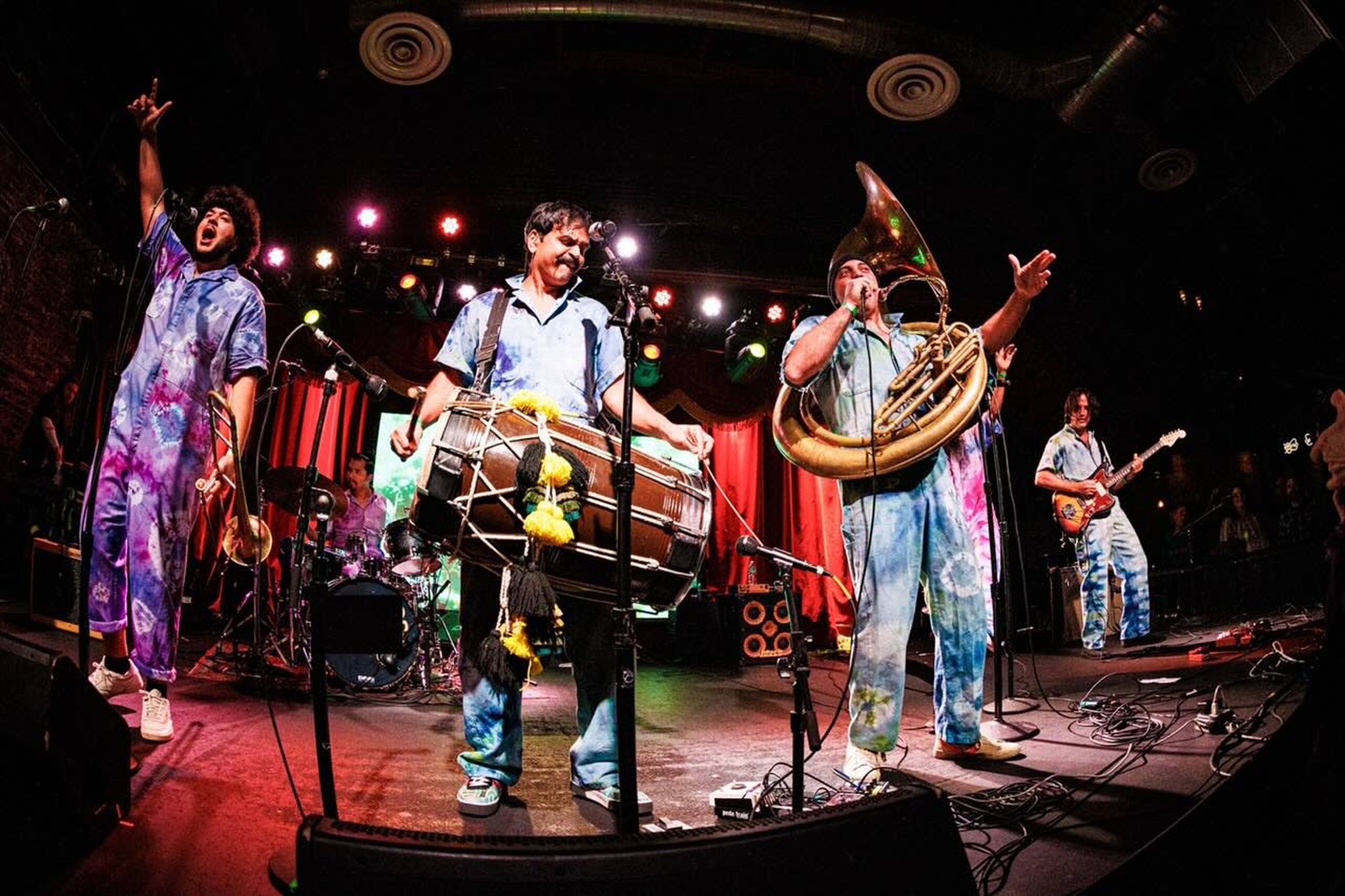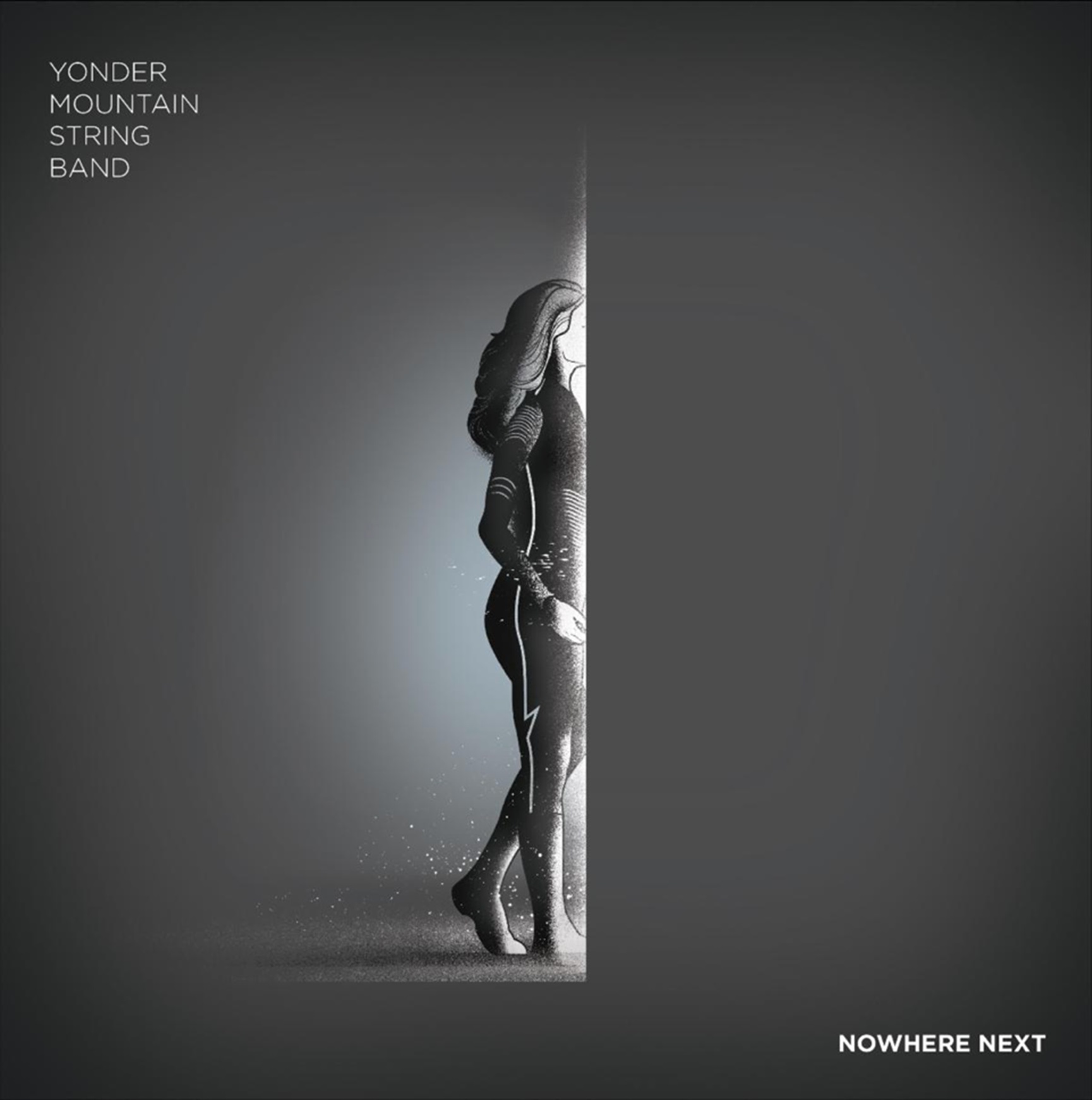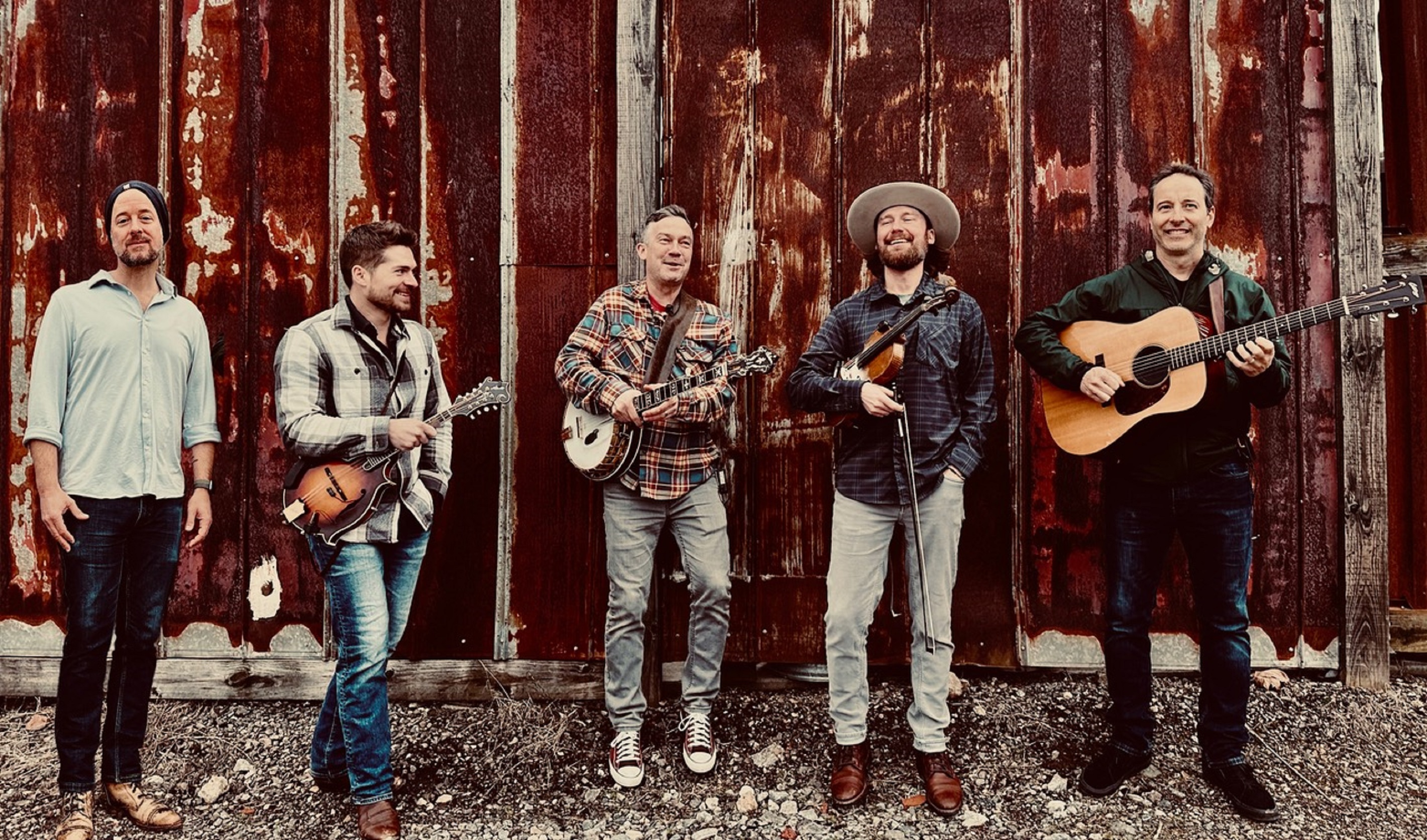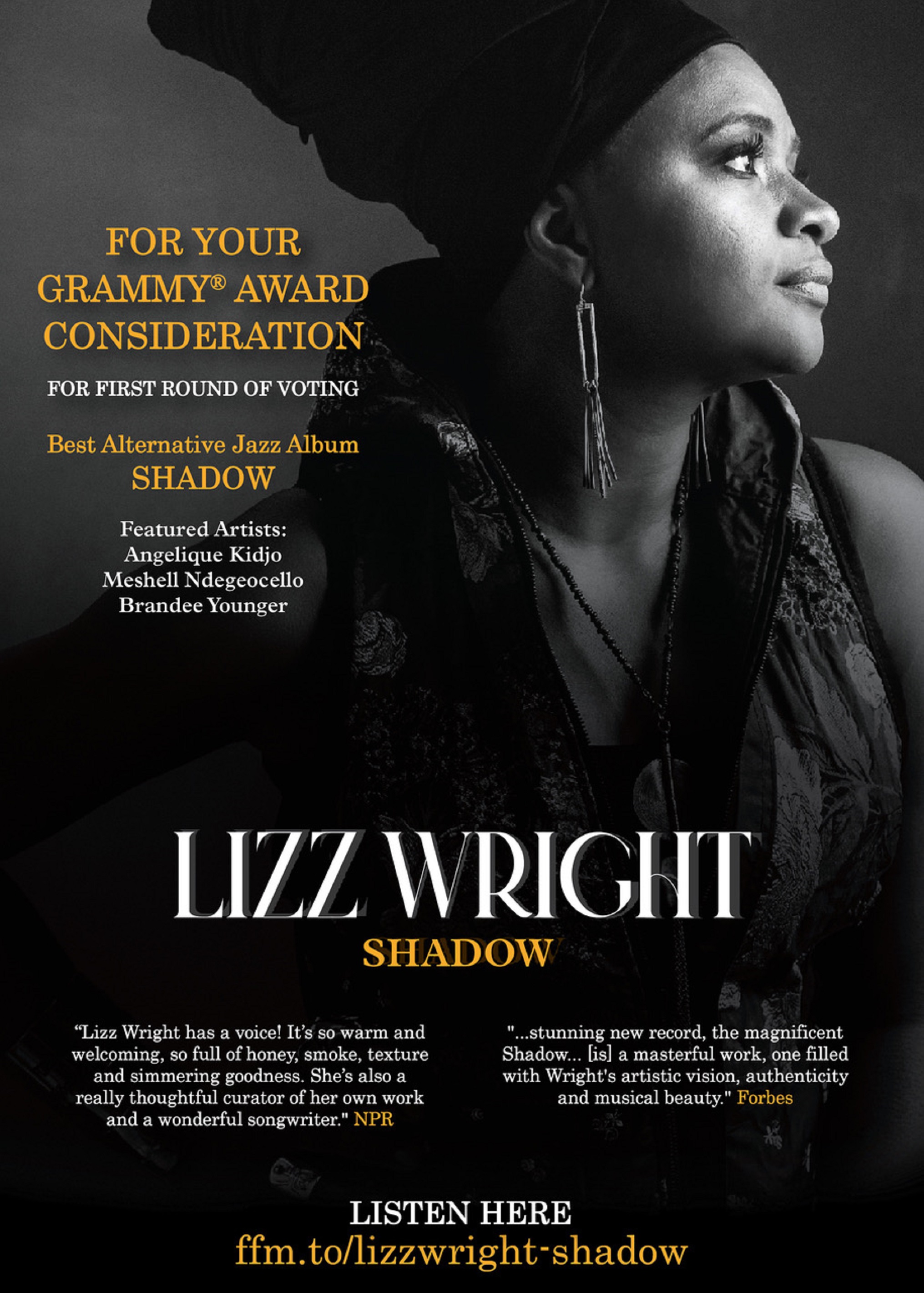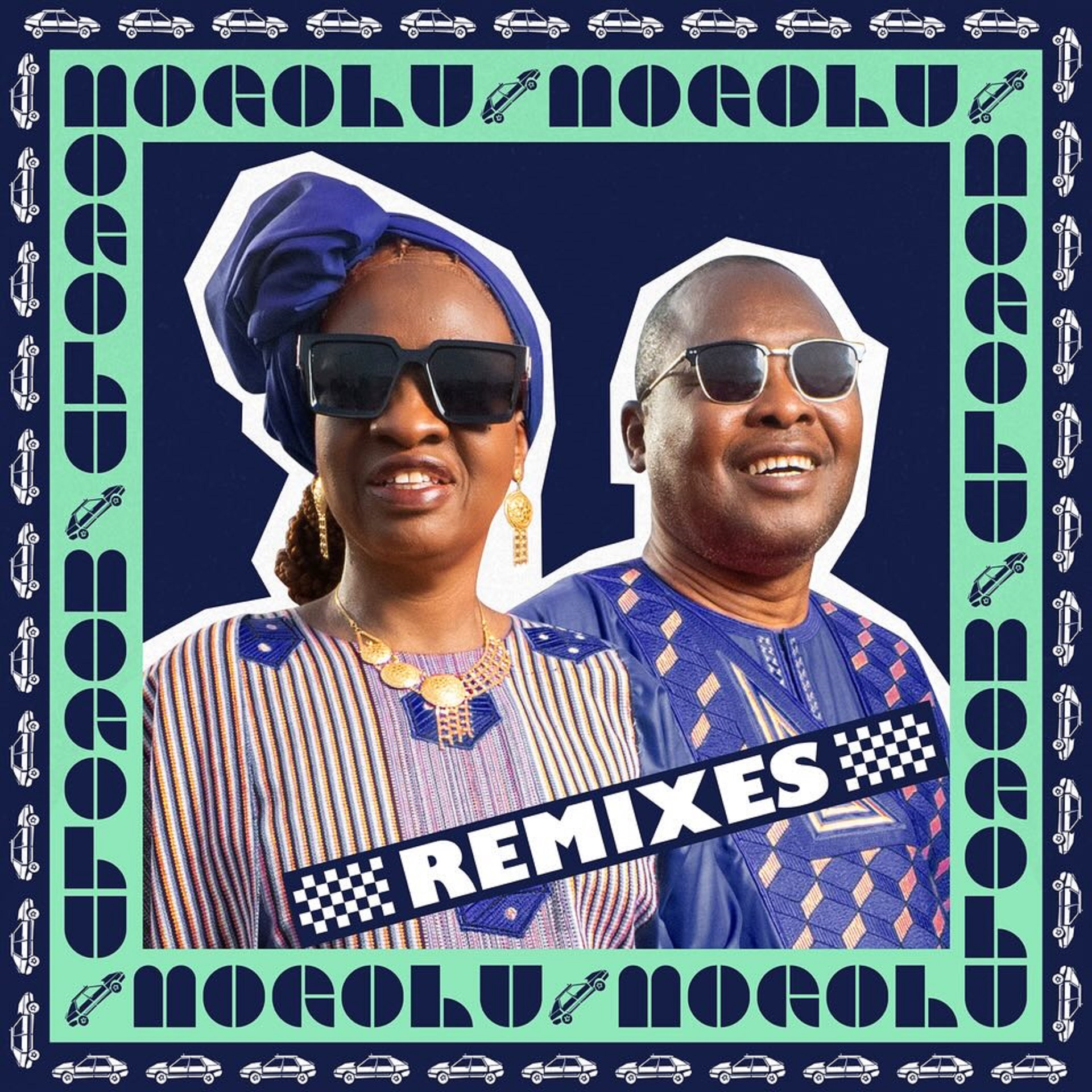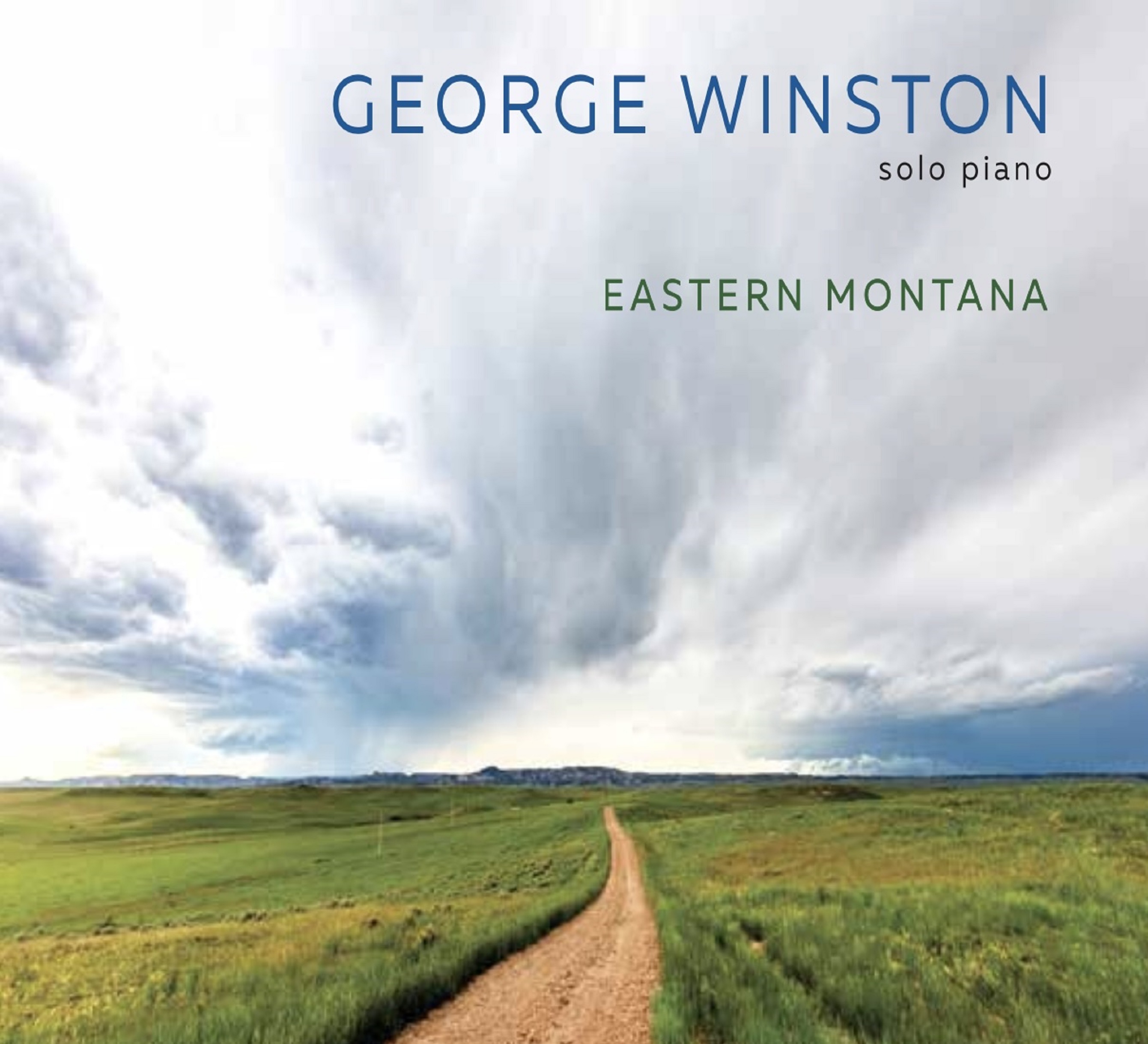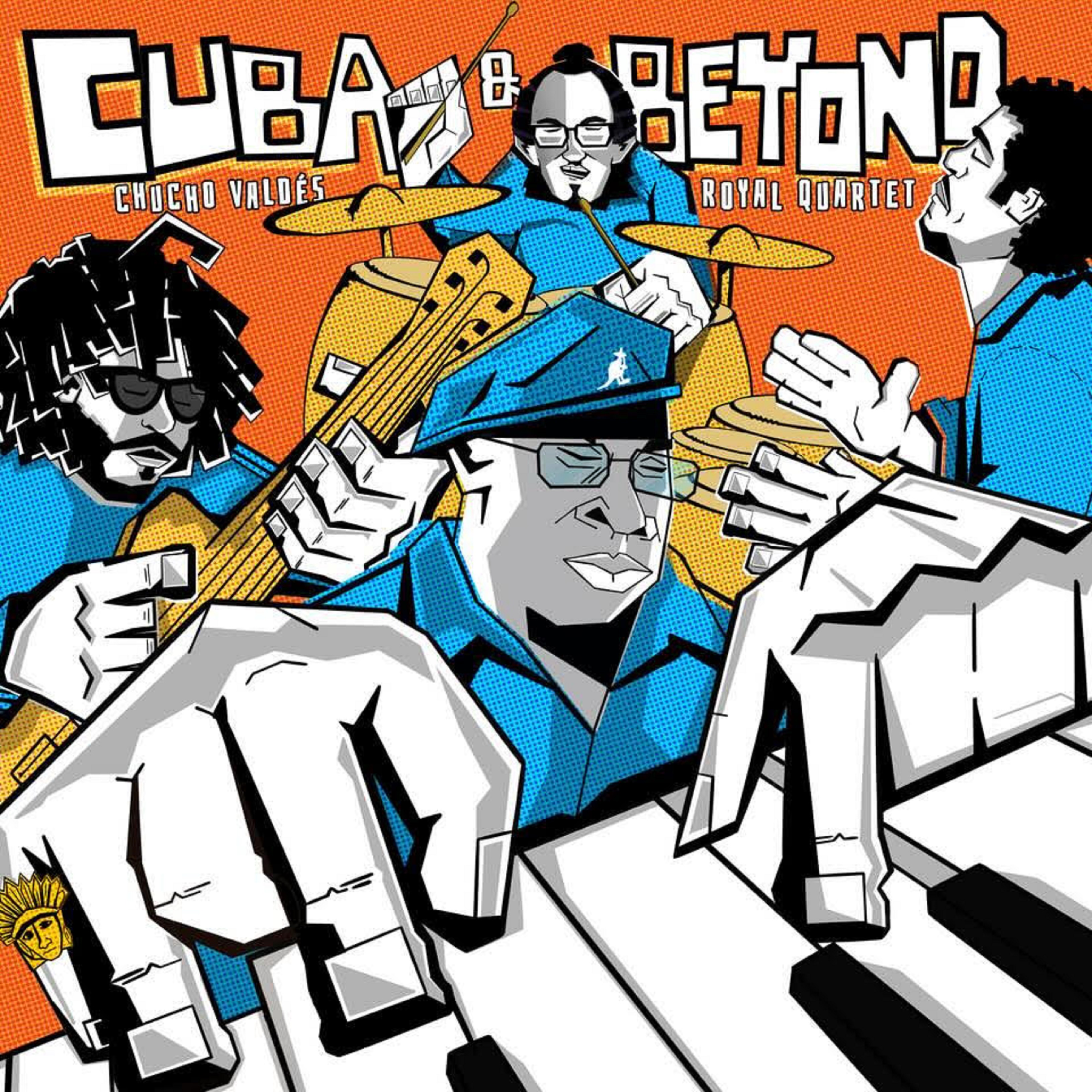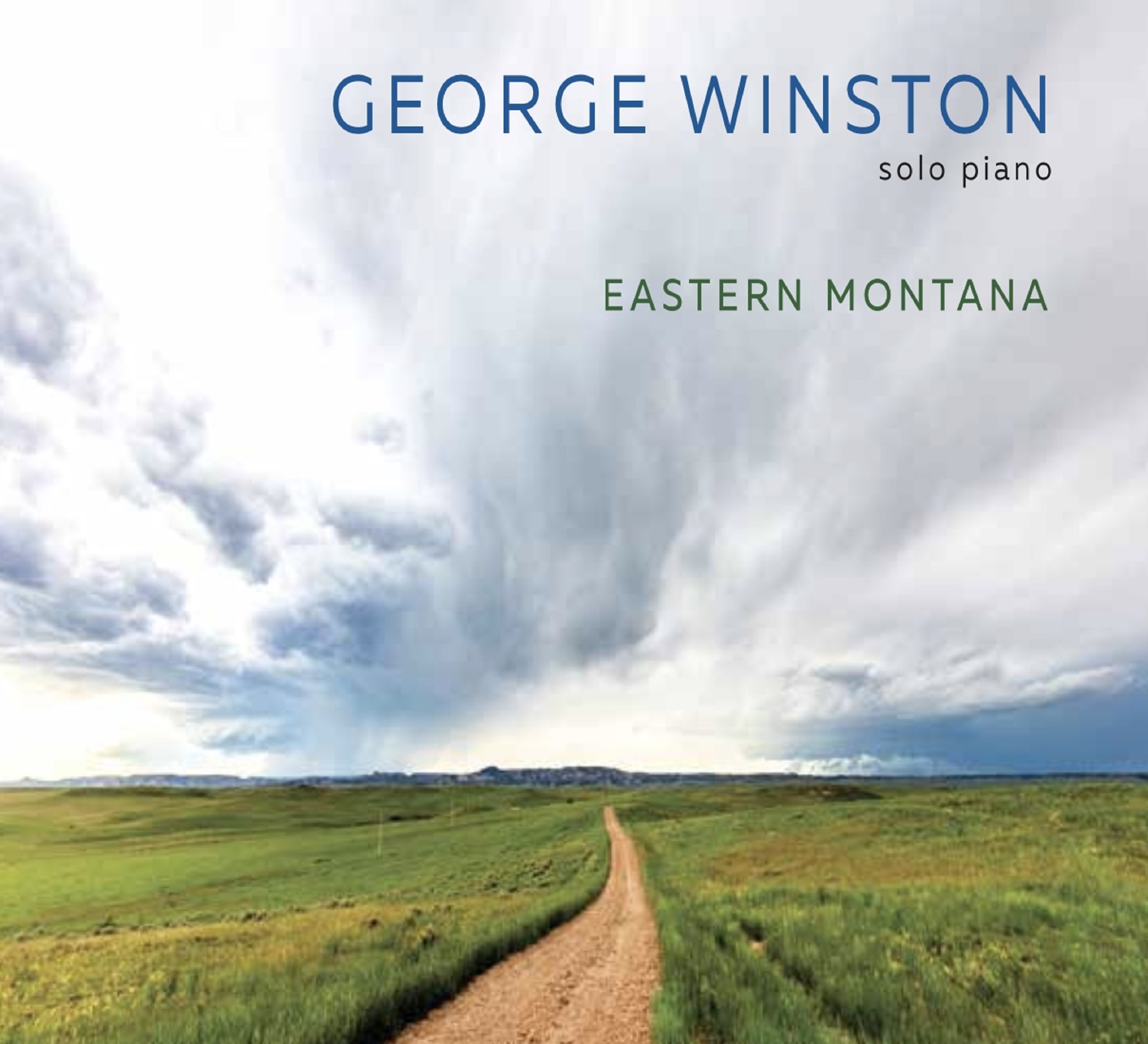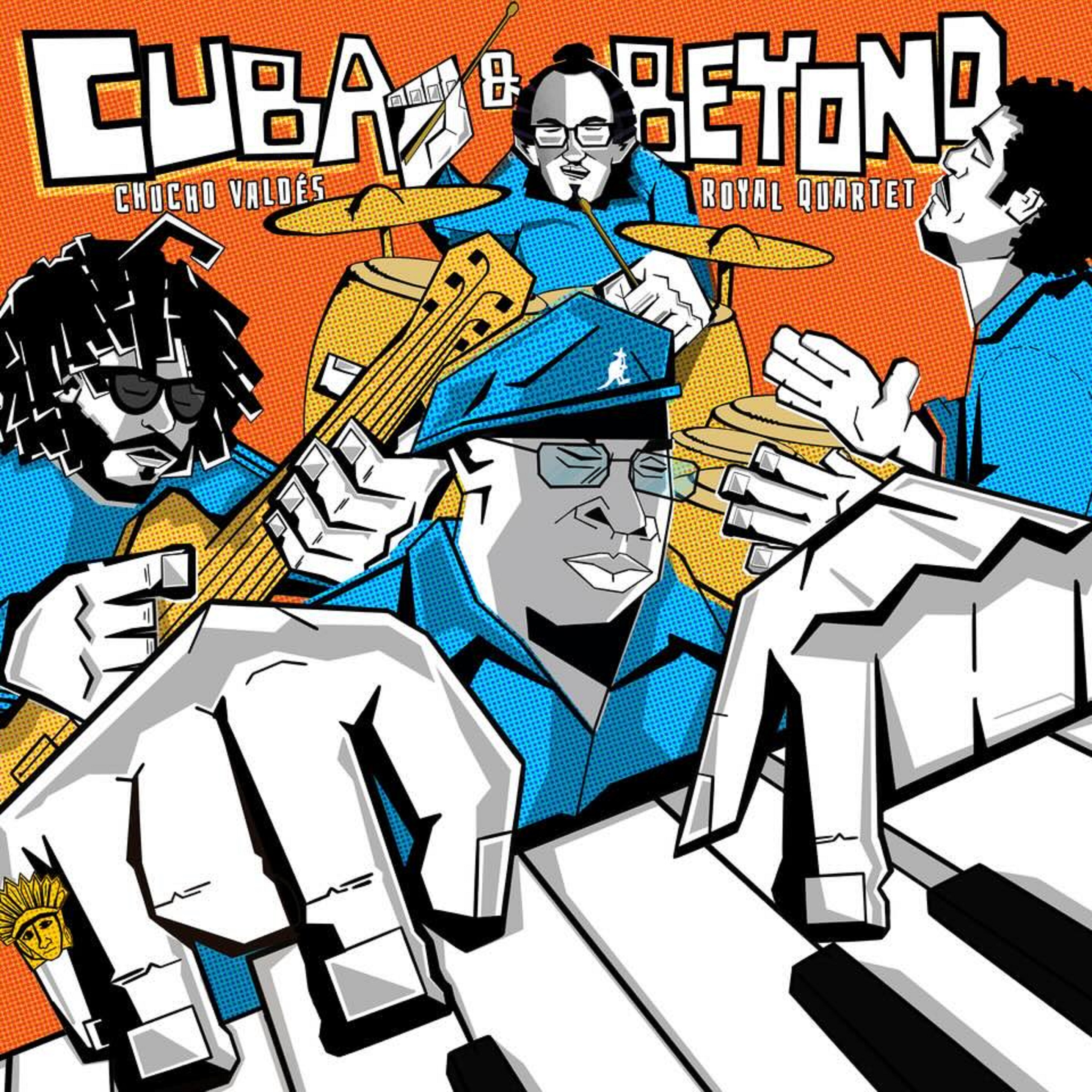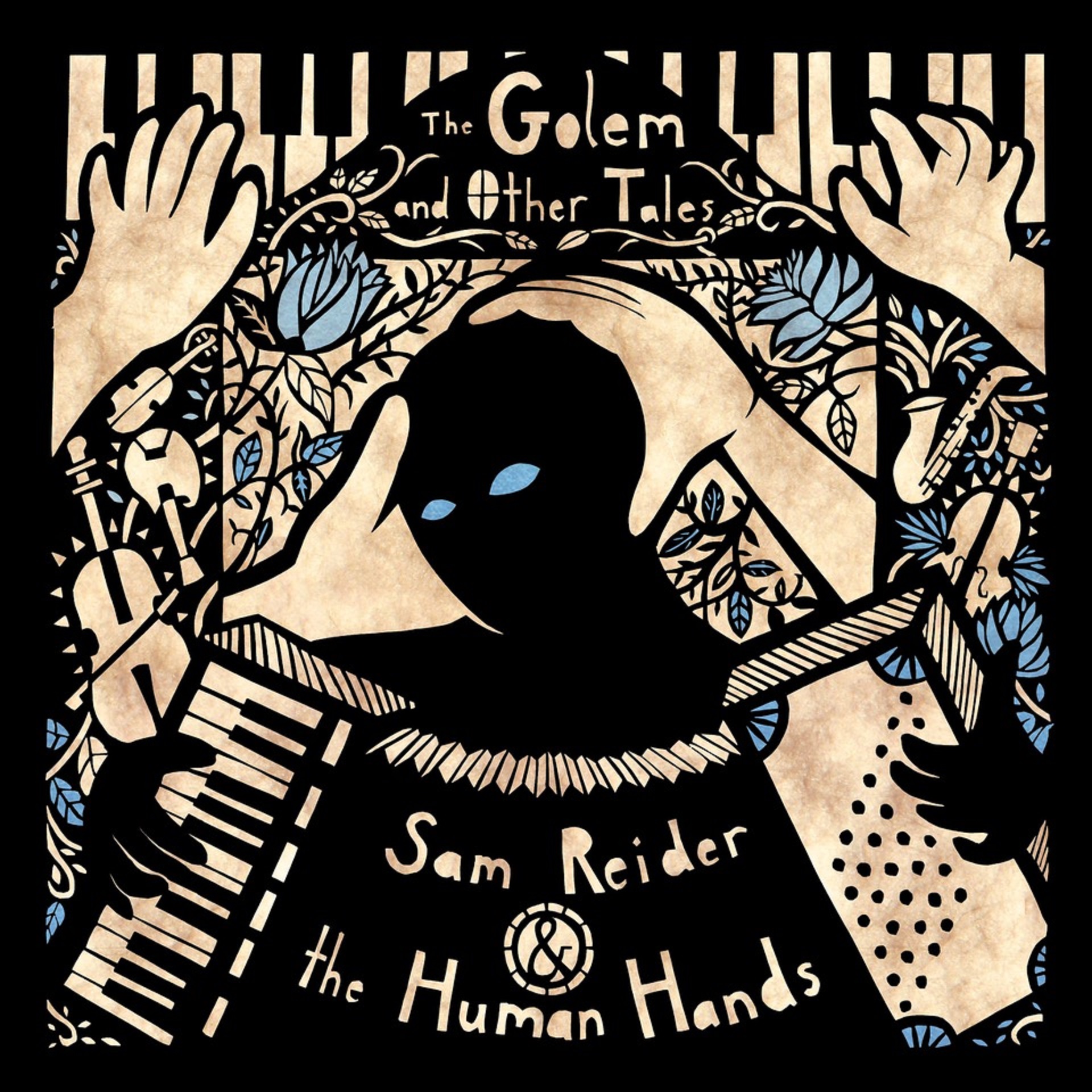One of today's foremost Sacred Steel players DaShawn Hickman channels the blues-gospel traditions of the Pentecostal-Holiness churches of the 1930s on his debut album, Drums, Roots & Steel, released today (June 2) by Little Village Foundation. Produced by guitar-phenom Charlie Hunter, Hickman draws a through-line to Southern black church music dating back to nearly a century before he put his own sound down in the studio with Drums, Roots & Steel. Hickman shines bright on Sacred Steel with Hunter on bass, as well as two West African percussionists, Atiba Rorie and Brevan Hampden, and singer Wendy Hickman.
While Hickman grew up with the pedal steel taking the lead in the House of God church that his family attended in Mt. Airy, North Carolina, most of the American black churches had the organ front-and-center. He harkens back to a time when trap drums were utilized in the '30s with just a bass drum, tambourine, washboard, and cowbell alongside the lap steel (and then later the pedal steel in the '70s) singing the melodies. The turn-of-the-century arrangements paralleled West African music with its use of the shekere, djembe, bongos, tambourine, and cowbell. The church evolved over the decades to incorporate a snare drum, full drum kit, rhythm guitar, steel pedal, bass guitar, and keyboard and/or organ.
Drums, Roots & Steel is unproven ground in modern music. Hickman defies decades of pedal steel tradition in country music, Hawaiian music, rock, and gospel, which all have western music rhythmic foundations. Hickman reforms how the pedal steel moves around the music; honing in on the djembe as the kick drum, bongos as a snare, and cowbell as a high-hat. All the while, his pedal steel slices through genres for a cutting display of jaw-dropping slide work.
"Sacred Steel can be so bombastic, with heavy gospel drums and loud instruments, that you lose a lot of the beauty of the pedal steel," Charlie Hunter explains. "It's kind of like with vibes -- when you hear people playing vibes alone, it's astonishing how it just takes over; but the second the band starts playing, you lose so much of it. This record is about the steel guitar having that entire area to itself, and it's rare to find two percussionists that are deep into West African music, Afro-Cuban and Puerto Rican rhythms, who also grew up in the South. This is all a continuum of the influence of African drumming and how it authentically roots different musical styles together."
DaShawn Hickman adds, "From an early age when I would hear my mom singing and rehearsing for Sunday service at our church, I'd be in my room learning the melodies on a single string on the pedal steel. I was always interested in voice and pedal steel, but it wasn't until Charlie proposed the idea of the pedal steel having much more presence in the arrangement, that the idea stuck and we took it into the studio."
In 2019, Hunter moderated a panel discussion at the National Folk Festival in Greensboro, North Carolina with Hickman, Merle Haggard's guitar player Redd Volkaert, and Hawaiian slack-key guitar player Leward Kapana. Hunter and Hickman hit it off and he soon started sitting in on Hunter's recording sessions including his project with Lucy Woodward for her album, Stranger Blues, which is also produced by Hunter.
Drums, Roots & Steel returns Hickman to his heritage; to a time long before he was born. The collection of seven songs feature classic spirituals such as "Wade in the Water," "Just a Closer Walk With Thee," "I'm Going Home on the Morning Train," and "Precious Lord." On "Shout," Hickman's wife and vocalist/tambourine player Wendy Hickman soulfully sings as DaShawn plays lead lines and comps away along with Hunter's pocket bass groove. Wendy also appears on "Morning Train" and in a vocal duet with DaShawn on "Don't Let The Devil Ride."
"My playing on the record is unorthodox to the point of what the pedal steel was originally used for, it was a country instrument," says Hickman. "In church, we didn't do the sweeps and swells of the volume pedal, and we didn't have the chord progressions. We learned single-string melodies until you could learn how to play more strings, then you would graduate to the second string for the harmony, then to the octave strings. Its not what you typically hear. My generation is taking the traditional style and adding our own thing to it."
The legendary Henry Nelson was a pioneering pedal steel player in Hickman's church. Hickman grew up surrounded by Nelson and Tommy Gerald's old-time bluegrass music. His early days were in a bluegrass band and he soon formed a Sacred Steel group originally named Mabel's Boys, who found greater fame as The Allen Boys (North Carolina's only touring Sacred Steel band). In more recent years, he's gone on to perform with singer/songwriter Laurelyn Dossett, singer/multi-instrumentalist Alice Gerrard, banjo player Riley Baugus, guitarist Eric Gales, and Graham Sharp of the Steep Canyon Rangers.
On pedal steel players who have helped pave the way for Hickman to perform Sacred Steel outside of the church, he notes, "I give Robert Randolph a lot of credit, as well as The Campbell Brothers. Robert took our style of music and reached the masses. I give him all the respect in the world. And even though they play the same instrument, Roosevelt Collier's style is so different than Robert's and I just love what he's doing. I always jam with Roosevelt when he comes to town!"
Jim Pugh and Little Village Foundation will present an album release concert for Drums, Roots & Steel at The Freight & Salvage (Berkeley, Calif.) on Thursday, June 2, 2022 (LINK).
For more information regarding DaShawn Hickman and Drums, Roots & Steel, please visit: instagram.com/dashawnhickman_steelguitar.





